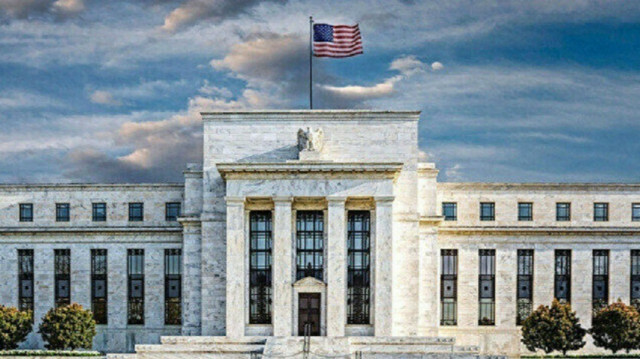
Softer implementation of tight monetary policy is a way to avoid recession, says economist
Thursday's surprise first-quarter GDP figure has triggered discussions over the US falling into a recession this year amid a record-high inflation rate and more hawkish stance of the Federal Reserve.
The US economy contracted for the first time since 2020 in the first quarter of this year with real GDP falling at an annual rate of 1.4%, according to the Commerce Department's first reading of the data.
The market had estimated that the GDP, or gross domestic product, would have risen over 1% from January to March.
Moody's Analytics chief economist Mark Zandi told Anadolu Agency that the negative first-quarter GDP figure was a surprise, but not a material one.
"Recession is a threat, but no more of one," Zandi said.
He underlined that international trade, inventories, and government spending weighed on growth heavier than expected.
Zandi also blamed the omicron variant of coronavirus and the fallout from Russia's war on Ukraine for smashing the growth.
He highlighted that the US economy continues to expand strongly and at a pace that continues to bring down unemployment.
"The Fed has much work to do to quickly normalize interest rates, to slow growth sufficiently to quell the painfully high inflation. I expect the Fed to pull this off without pushing the economy into a recession, but it won't be easy," he added.
Sibel Kulaksiz, a senior economist at the World Bank, said despite the gloomy outlook caused by the contraction and inflation, the US economy seems resilient.
Pointing to a rebound in consumer spending, housing investments, and travel expenditure despite the omicron variant, Kulaksiz said these developments will likely compensate for the negative growth effect to some extent.
"Although a recession is not felt at the moment, we may consider the contraction in the first quarter as a sign of warning," Kulaksiz told Anadolu Agency.
High consumer demand and supply shortages have begun to push the limits of the economy, she added.
- 'Soft landing'
Kulaksiz underlined the importance of a softer implementation of tight monetary policy and of forming economic policies within the strategy of a "soft landing."
"If such a policy is followed, I think there will be no recession," she noted.
James Knightley, the chief international economist at ING, said the contraction at a time when inflation is running at 40-year highs will lead to more talk of stagflation.
Annual consumer inflation in the US soared to 8.5% in March, the highest level since December 1981.
Knightley pointed out that the details of the first-quarter GDP are not as bad as the headline figure suggests.
"Domestic demand actually held up pretty strongly, especially when we take into account the hit to economic momentum caused by the omicron wave late last year," he said.
Knightley highlighted that the US economic growth will gain momentum in the second quarter, despite fiscal and monetary policy becoming less supportive.
"While inflation is hurting spending power, nominal incomes are rising strongly, and there are decent employment gains that in combination can keep spending firm," he said.
"We are looking for the second-quarter annualized growth to come in at 2.0%-2.5%, and with inflation pressures remaining elevated and the labor market looking so tight, today's disappointing GDP outcome shouldn't alter the outlook for a 50-basis-point Fed interest rate increase next week."
On March 16, the Fed started its monetary tightening with a 25-basis-point hike to a range of 0.25%-0.5%. The bank is expected to increase interest rates by 50 basis points at its meeting in May.

